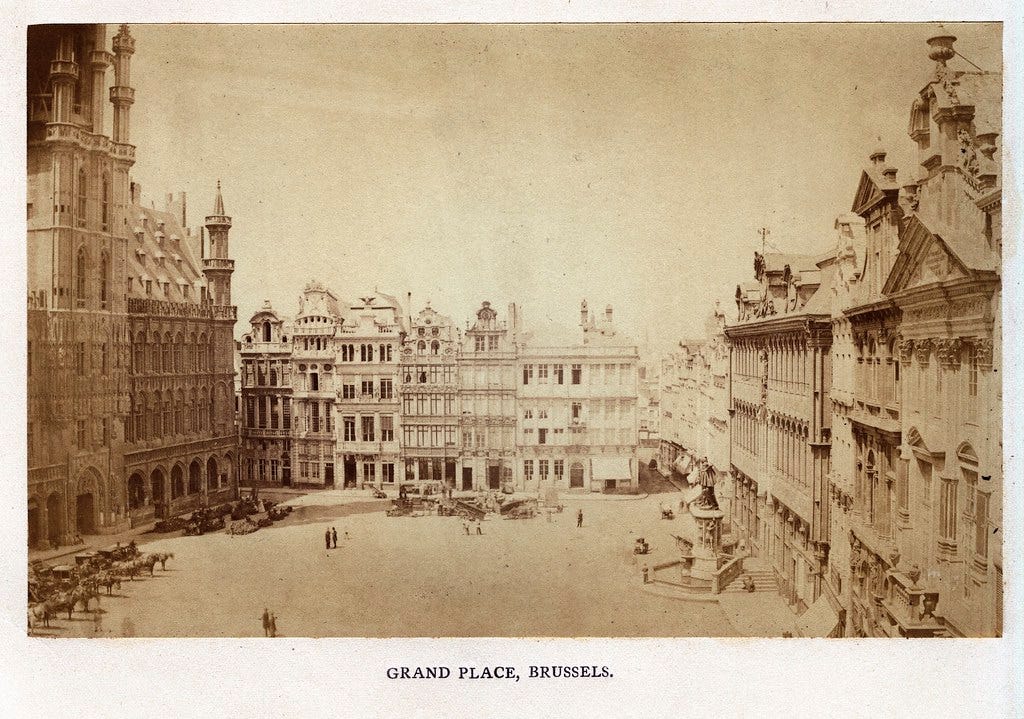Charles Baudelaire had a virulent disdain for Belgium. The last thing he wrote before his death from a twenty-eight year bout with syphilis was a mock guidebook of Brussels and Namur. He shopped the project to publishers back home in France in 1866, but they all turned him down, so he eked out a living for a while teaching literature in Brussels. He had earlier burned through his inheritance in just two years.
Even by the standards of a French intellectual, Baudelaire comes off as amazingly pompous and vituperative. Gluttony and humidity account for Belgian women’s disgustingly large breasts and thighs. Baudelaire laments “the barbarity of children’s entertainment.” Conformity and bourgeois timidity seem to be his main targets: “Everyone in sales, even the rich.” Also: “Freedom is a mere word in Belgium. It’s there on paper, but it doesn’t exist, because nobody feels the need for it.”
Could a damp, prosperous city of burghers really have been so awful? Anne Emmanuelle Berger notes that in a letter Baudelaire explained that his takedown of Belgium was to precede a similar attack on his native France, and then, on all humankind. But he didn’t live long enough to develop his new writing style, which Berger aptly calls the “postlyrical idiom of a furious derelict.”
Some interesting political observations find their way into Baudelaire’s bilious ranting. He describes suddenly-ending sidewalks as an example of individual liberty pushed to the extreme. The country is a “diplomatic harlequin” patched together by the great powers in 1830. A swift annexation of Belgium would be too merciful – Baudelaire yearned for something more destructive. “Belgium is safeguarded by the balance of rivalries. Yes, but what would happen if these rivals reached an agreement among themselves?”
Very amusing, Chuck. It’s not as though his whole oeuvre was putdowns. For my money, the most compelling aspect of Baudelaire’s perpetual dissatisfaction was his brief, surprising political career during the February Revolution. He seems never to have spoken about his actions during that upheaval. His own class background would have predisposed him to sympathize with the Louis-Napoleon’s restoration, and yet the lure of vengeance and crime sent him to the barricades. He renounced all political activity after the revolution, unless you count his anti-Belgium polemic as political.
Baudelaire had a brilliant career fueled by rejecting not just mainstream society, but also the time-honored forms of rebellion against that society. Sartre called his life “a very slow and very painful decomposition.” Survival meant struggle, and Baudelaire loved struggling against Belgium.
Further reading:
Charles Baudelaire, “Pauvre Belgique.”
Anne Emmanuelle Berger, “Reigning Cats or Dogs? Baudelaire’s Cynicism,” Yale French Studies, 2014.
Richard J. Klein, “Baudelaire and Revolution,” Yale French Studies, 1967.





